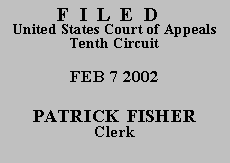

| UNITED STATES OF AMERICA, |
|
We have reviewed the transcript of the sentencing hearing. We only have jurisdiction to review a district court's refusal to depart when the district court "concludes that an entire class of circumstances never constitutes the basis for a downward departure." United States v. Castillo, 140 F.3d 874, 888 (10th Cir. 1998). Where the district court exercises its discretion to depart based upon the circumstances of a defendant's case, as happened here, we lack jurisdiction. United States v. Browning, 252 F.3d 1153, 1160-61 (10th Cir. 2001). The district court not only found that "no departure is warranted under the facts of this case," II R. 17, but also considered those actual factseven if Mr. Ochoa-Olivas was given incorrect advice in January 2001, he still had to enter the country unlawfully, II R. 18. Contrary to Defendant's argument, this is not a categorical denial, but rather a consideration of the Defendant's circumstances that surrounded the defective advice.
APPEAL DISMISSED.
Entered for the Court
Paul J. Kelly, Jr.
Circuit Judge
*. This order and judgment is not binding precedent, except under the doctrines of law of the case, res judicata, and collateral estoppel. This court generally disfavors the citation of orders and judgments; nevertheless, an order and judgment may be cited under the terms and conditions of 10th Cir. R. 36.3.
2. After examining the briefs and the appellate record, this three-judge panel has determined unanimously that oral argument would not be of material assistance in the determination of this appeal. See Fed. R. App. P. 34(a); 10th Cir. R. 34.1(G). The cause is therefore ordered submitted without oral argument.